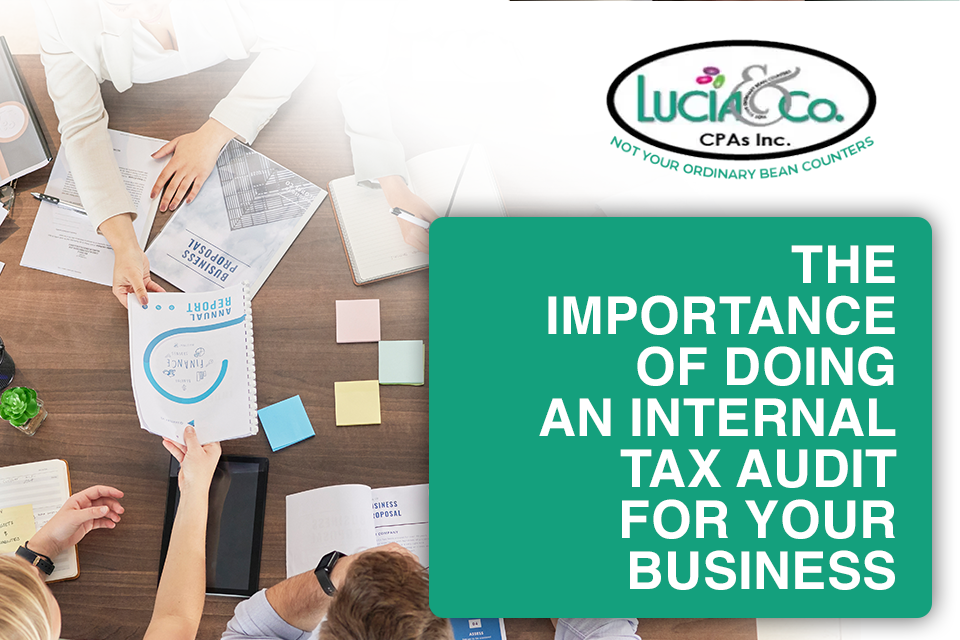Tax compliance is essential. An internal tax audit is a proactive tool that allows businesses to self-evaluate their tax practices, reduce errors, and ensure that all processes comply with tax regulations. By implementing this audit, organizations can address issues before they escalate, making it a valuable part of responsible financial management.
In this article, we’ll dive into the fundamentals of an internal tax audit, including its purpose, process, benefits, and how it compares to external audits. Whether you’re a small business owner or part of a larger corporation, understanding internal audits can help streamline your financial processes and prevent tax-related complications down the road.
What Is an Internal Tax Audit?
An internal tax audit is an in-house examination of a company’s tax-related documents, records, and transactions. Unlike an external tax audit, which is conducted by the IRS or other tax authorities, an internal tax audit is voluntary and often initiated by the business itself. The goal is to identify discrepancies, ensure compliance with tax regulations, and uncover any areas where tax reporting or payments may have been mismanaged.
This type of audit is generally carried out by a company’s internal accounting team or, in some cases, by external auditors hired to provide an unbiased perspective. By conducting regular internal tax audits, businesses can address tax compliance issues early, thus avoiding potential penalties, interest charges, and reputational damage.
The Key Components of an Internal Tax Audit
An internal tax audit comprises several stages designed to assess different areas of tax compliance and financial reporting. Here are the primary components:
- Reviewing Financial Statements and Tax Returns
The first step of an internal tax audit involves a thorough review of financial statements and tax returns for accuracy. Auditors will compare the numbers reported in tax filings to the records in the business’s financial systems, identifying any discrepancies that may have arisen from data entry errors, miscalculations, or misclassifications. - Examining Payroll Taxes
Payroll taxes are a major area where errors can occur. During the audit, the company will review payroll records, withholding amounts, and deposits made to the IRS and other tax authorities. Missteps in payroll tax compliance can lead to substantial penalties, so this is a crucial part of the audit. - Reviewing Deductions and Credits
Businesses often take deductions and credits to lower their taxable income. However, improper application of these deductions can result in audits from tax authorities. An internal tax audit assesses whether the company is eligible for the claimed deductions and ensures they are documented accurately and legally. - Evaluating Sales and Use Taxes
Sales and use taxes vary widely depending on the jurisdiction, making compliance complex for companies operating in multiple states or countries. Auditors examine records of sales, purchases, and other transactions to verify that the appropriate sales or use taxes were collected, paid, and recorded. - Ensuring Compliance with Employment and Benefits Taxes
Employment taxes encompass a range of obligations, including Social Security, Medicare, and unemployment taxes. Auditors verify that these taxes are calculated and paid correctly, which is essential for both legal compliance and maintaining employee trust. - Inspecting Documentation and Record-Keeping Practices
Proper documentation is vital for accurate tax reporting. Auditors review records of expenses, income, and other financial activities, assessing whether the documentation is complete, organized, and in line with IRS guidelines. This step also highlights opportunities for improving record-keeping practices, which can make future audits more efficient.
Benefits of Conducting an Internal Tax Audit
Conducting an internal tax audit brings several advantages for businesses. Here’s a look at how regular audits can improve financial management and strengthen compliance:
- Early Identification of Errors: Internal tax audits allow businesses to identify and rectify errors before they lead to costly penalties or regulatory action. By catching issues early, companies can save both time and money in the long run.
- Enhanced Compliance: Staying on top of tax regulations can be challenging, especially as rules and guidelines frequently change. Internal tax audits ensure that a business remains compliant, reducing the risk of triggering an external audit or legal complications.
- Streamlined Processes: Internal audits provide an opportunity to assess the efficiency of current tax-related processes. By identifying areas for improvement, businesses can streamline workflows, enhancing overall productivity and accuracy.
- Improved Financial Planning: Regular internal tax audits offer insights into financial performance, helping business leaders make informed decisions about future budgeting and planning.
How Often Should a Business Conduct an Internal Tax Audit?
The frequency of internal tax audits can vary depending on a business’s size, industry, and financial complexity. Many companies benefit from conducting an audit annually, as this aligns with the typical tax filing cycle. However, businesses undergoing rapid growth or changes in structure may opt for quarterly audits to maintain close oversight of tax compliance. Ultimately, the decision should be based on the specific needs and resources of the business, as well as its risk tolerance.
Differences Between an Internal Tax Audit and an External Tax Audit
Understanding the distinctions between an internal tax audit and an external tax audit is crucial for navigating tax compliance effectively.
- Voluntary vs. Involuntary: An internal tax audit is conducted voluntarily by the business, while an external tax audit is usually initiated by tax authorities due to suspicions of non-compliance or random selection.
- Control and Scope: In an internal tax audit, the business has control over the audit’s scope, allowing it to focus on specific areas of concern. External audits, on the other hand, are guided by the tax authority, often requiring extensive documentation and compliance checks.
- Cost: While internal audits can be performed using in-house resources or external consultants, external audits can be more costly and time-consuming, often resulting in penalties if discrepancies are found.
- Goals: The main goal of an internal audit is to self-assess and improve, whereas an external audit’s purpose is to verify compliance and identify any areas where the business may owe additional taxes.
Common Mistakes Found in Internal Tax Audits
Internal tax audits often reveal common errors that businesses make in their tax reporting. Here are a few frequent issues to watch out for:
- Misclassification of Expenses: Failing to categorize expenses accurately can lead to incorrect deductions and tax liabilities. For example, capital expenses should be recorded separately from operational expenses.
- Errors in Payroll Taxes: Payroll tax mistakes, such as incorrect withholdings or missed deadlines, are common. Ensuring accurate payroll tax compliance can help prevent penalties and maintain good employee relations.
- Missed Deadlines for Tax Payments: Missing deadlines for filing or paying taxes is a preventable error that can lead to penalties. Proper tracking and calendar reminders can mitigate this issue.
- Overlooking Sales Tax Obligations: Companies operating in multiple jurisdictions may forget to apply sales tax properly. Sales tax software or professional guidance can help businesses manage these obligations accurately.
Tips for a Successful Internal Tax Audit
To ensure a productive internal tax audit, consider implementing the following best practices:
- Prepare in Advance: Gather all necessary documents, including tax returns, payroll records, expense receipts, and financial statements. Being organized from the start can make the process smoother.
- Involve Key Stakeholders: The finance team, HR, and payroll departments may all have valuable insights or documentation to contribute. Ensure that each department involved in tax reporting participates in the audit process.
- Use Tax Software: Tax software designed for businesses can streamline record-keeping and reduce errors, making the audit process more efficient.
- Seek External Help if Needed: If your team lacks specific tax expertise, consider hiring a tax professional or CPA to assist with the internal audit. Their experience can help you address complex tax situations.
- Document Findings: Make detailed notes on any discrepancies or areas of improvement discovered during the audit. This documentation will serve as a useful reference for future audits and compliance checks.
When to Seek External Assistance for an Internal Tax Audit
While many companies conduct internal audits on their own, some situations call for external assistance. If your business has experienced significant growth, acquired new assets, or expanded into new jurisdictions, you may benefit from the guidance of an outside tax professional. An external auditor can provide an objective review of your tax practices and offer recommendations tailored to your business’s unique needs.
Final Thoughts on Internal Tax Audits
An internal tax audit is a powerful tool for maintaining compliance, improving financial accuracy, and fostering a culture of accountability within your business. Regular audits ensure that your tax practices align with current regulations and help you catch errors before they escalate. By prioritizing these audits, businesses can avoid penalties, strengthen their reputation, and make more informed financial decisions.
Take Control of Your Tax Compliance with Lucia & Co. CPAs Inc.
Ready to streamline your tax processes and ensure compliance with ease? At Lucia & Co. CPAs Inc., our team of experts offers tailored tax audit and advisory services to meet the unique needs of your business. Whether you need assistance with an internal tax audit or professional tax planning, Lucia & Co. CPAs Inc. is here to help. Contact us today to learn how we can support your financial success and secure your business’s future.




